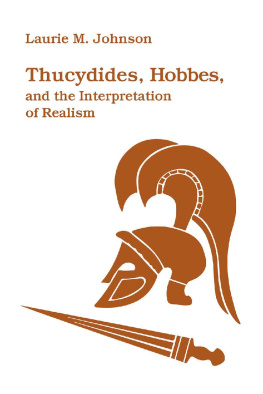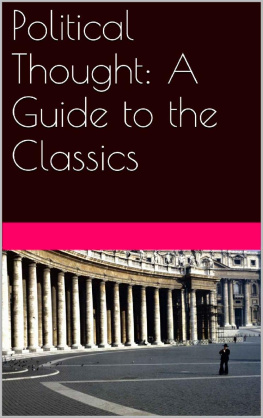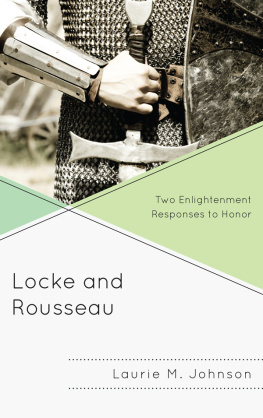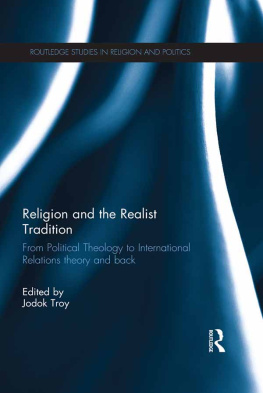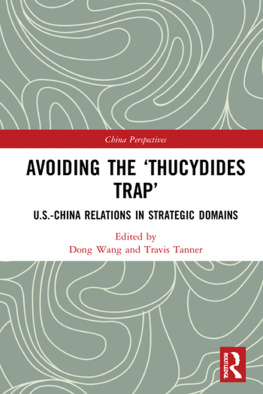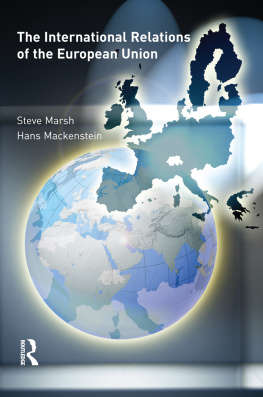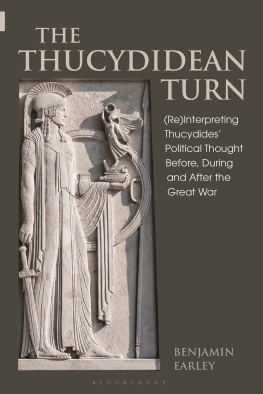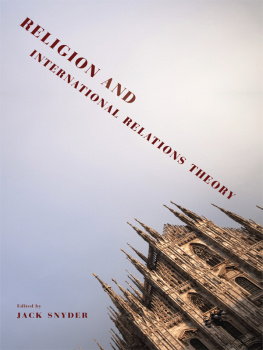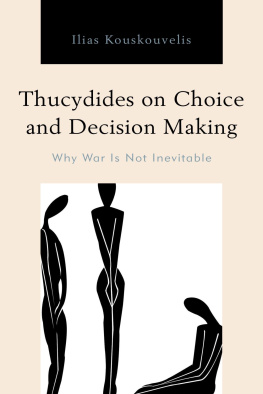LAURIE M. JOHNSON
Introduction
As a student, I had seen the names of Hobbes and Thucydides mentioned repeatedly as examples of realism in the study of international relations. In the literature of international relations, Thucydides and Hobbes are often used interchangeably, sometimes as symbols, sometimes as straw men, but infrequently with any substantive penetration of the actual philosophic texts. These references intrigued me and actually were one of the primary reasons I became a student of political philosophy.
So as I began writing this book, I still had the questions that the literature of international relations had raised in my mind. But I was very much interested in the kind of thorough analysis that one can only do if one is not intent on covering every angle of both fields, that is, international theory and political philosophy. Those international relations scholars who related their realist theories to Thucydides and Hobbes, or to some other philosopher, could read such a book with profit and form their own conclusions about what impact it had on their conception of the realism of international relations. They would have the benefit of a work which goes beyond the less detailed or informed conceptions of these philosophers works that have found their way into many an international relations book or article. I was hoping that the richness in detail and scope of this book would spawn in them new ideas, new subtleties, perhaps new understandings of old themes within realist discourse. At the same time, since my interpretations of Thucydides and Hobbes, especially Thucydides, might be considered innovative (I hope charitably) by some, I also hoped my book might be of use to other political theorists who are interested in one or both.
I have chosen what at first might seem a counterintuitive procedure in covering Thucydides and Hobbes. In each of three chapters I have chosen to place the sections on Hobbes before the sections on Thucydides. Obviously, this is not a chronological arrangement! But I conceived of their relationship as one in which one raised questions and challenges that had to be answered by the other. The questioner and challenger was Hobbes, who himself translated Thucydides History of the Peloponnesian War. Hobbes saw in the History a confirmation of his own philosophy, and he interpreted Thucydides in a unique fashion in order to do so. I began to wonder what Thucydides would have to say to Hobbes. Would he agree with Hobbess reading of his history? What would he have to say about Hobbess philosophy in general? I began to suspect that he would take umbrage at his work being so easily equated with Hobbesian theory by Hobbes, as well as by todays students of international relations.
And so I posed three questions over which they could debate. The first, the one from which all else flows, deals with human nature. Do Hobbes and Thucydides hold the same view of human nature or do they differ? I believe they differ so widely in their conceptions of human nature and the perspectives from which they view human activity and conflict are so divergent that they represent two different schools of thought. The one reduces all human thought and action to one motivation or cause, leveling in its wake all apparent human diversity of character and culture. The other expands the view, not to the point of a meaningless and endless clutter of influences on human behavior but to a much more rich and rounded picture.
The next question to be asked followed from the first. What were their respective views of justice? I hope that those especially who are interested in the growing field of international ethics will listen in on this part of the debate, for, again, I believe that Thucydides represents a way of examining justice in international affairs that differs markedly from that of Hobbes. I argue that Thucydides discovered and dealt with Hobbess argument within the drama and dialogue of his history. Thucydides recognized the strength and impact of the Hobbesian subordination of justice to power; it was alive within the Athenian thesis and the Athenians actions. But Thucydides has much to say about this thesis, and in what he has to add to and subtract from it and in what ways he wants to criticize it he points the way to a realistic but non-Hobbesian understanding of justice in international relations.
Finally, I asked the age-old question of the best regime. It was on this question more than on any other that Hobbes thought Thucydides would agree with him. The best regime for Hobbes, of course, was monarchy. But Thucydides answers differently, having different criteria and different objectives in mind. Thucydides answers on the question of the best regime follow from his perspective on human nature and justice, as do Hobbess. Their divergence here serves to point up their divergence elsewhere.
This book contains, then, an argument for the differences between the two. It also carries, clearly, an argument that the Thucydidean approach to viewing and analyzing political conduct, especially international affairs, should be considered as a preferred alternative to the Hobbesian approach. In the conclusion, I apply my findings to some of the best literature of the realist and neorealist theories of international relations. Perhaps it would be useful to outline briefly my concluding argument now, although some readers especially interested in this aspect may wish to turn to the conclusion now and read the rest of the book afterward.
First, I believe that both realism and neorealism (which purports to be more scientific than its forerunner) share philosophic roots in Hobbesian theory. While realists are generally open about the fact that they assume a rather Hobbesian human nature in order to analyze international relations, neorealists cover similar assumptions under the guise of structuralism, which understands international relations in terms of power relationships in an anarchical world, in which states can be assumed to respond in specific ways to power imbalances and potential threats due to the inherent insecurity they face. In this regard, I point out that Hobbes was a structuralist as well. By assuming a human nature motivated primarily by self-preservation and self-interest, and by assuming a particular type of instrumental rationality, he could turn to an examination of the

